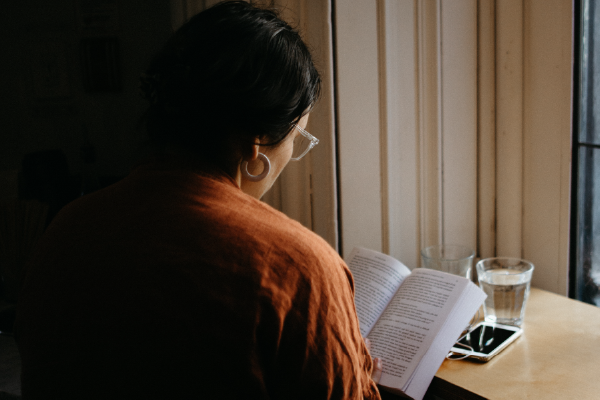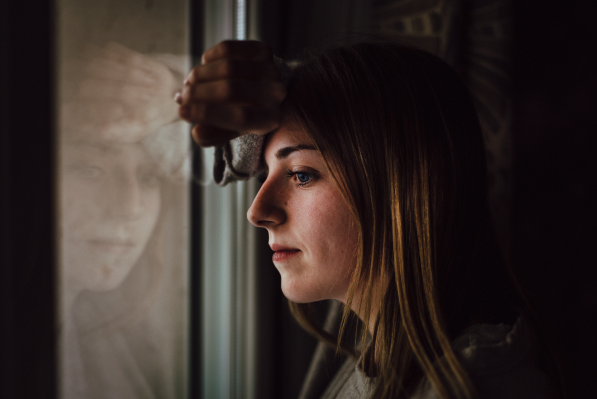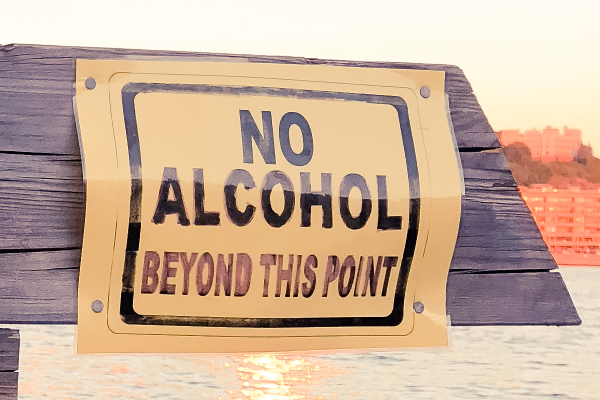As many as 1 in 3 practicing lawyers qualify as problem drinkers, and the New Year is a popular time to begin sobriety, whether experimentally in “Dry January” or with the intention to commit for a lifetime.
Roughly 20-36% of lawyers have an alcohol problem, depending on the measure. In the 2016 ABA COLAP/Hazelden study published in the Journal of Addiction Medicine, as noted by The Recovery Village, “(N)early 21% of participating lawyers and judges had problems with alcohol use; however, when the questions were focused only on how often and how much the participants drank, 36.4% were seen as hazardous drinkers.” View the ABA Substance Use Disorder Resource Center here, and find more on helping colleagues here. You can find our a listing of our confidential peer recovery meetings here, exclusively for Massachusetts lawyers, law students, and judges.
Book Recommendations
For those exploring commitments to experimental sobriety or long-term recovery, the right perspective and support can help — and books can be a source of both. While connection can be tough during the pandemic, reading stories from others who share their experiences and reflections can be transformative. Life and recovery coach, consultant, and founder of nonprofit Served Up Sober, Shari Hampton has recently curated a stack on recovery from her personal library to share as recommendations for others:
- Quit Like A Woman: The Radical Choice to Not Drink in a Culture Obsessed with Alcohol by Holly Whitaker: “We live in a world obsessed with drinking. We drink at baby showers and work events, brunch and book club, graduations and funerals. Yet no one ever questions alcohol’s ubiquity—in fact, the only thing ever questioned is why someone doesn’t drink. It is a qualifier for belonging and if you don’t imbibe, you are considered an anomaly. As a society, we are obsessed with health and wellness, yet we uphold alcohol as some kind of magic elixir, though it is anything but. When Holly Whitaker decided to seek help after one too many benders, she embarked on a journey that led not only to her own sobriety, but revealed the insidious role alcohol plays in our society and in the lives of women in particular. What’s more, she could not ignore the ways that alcohol companies were targeting women, just as the tobacco industry had successfully done generations before. Fueled by her own emerging feminism, she also realized that the predominant systems of recovery are archaic, patriarchal, and ineffective for the unique needs of women and other historically oppressed people—who don’t need to lose their egos and surrender to a male concept of God, as the tenets of Alcoholics Anonymous state, but who need to cultivate a deeper understanding of their own identities and take control of their lives. (Chrissy Teigen of Hollywood fame recently shared that this book inspired her new sobriety of 4 weeks.)
- Eight Step Recovery: Using the Buddha’s Teachings to Overcome Addiction by Vimalasara aka Valerie Mason-John and Dr. Paramabandhu Groves: “Eight Step Recovery is an alternative recovery program to the 12 step program of Alcoholic Anonymous. It uses the Buddhist teachings to overcome addiction. Eight Step Recovery, cofounded by Dr, Valerie Mason-John M.A (hon.doc) and Dr. Paramabandhu Groves Ph.D., is a set of mindfulness teachings outlining a suggested course of action for recovery from addiction, stinking thinking, negative mental states, and compulsive and obsessive behaviours.” Authors note that “the eight steps can be seen as the 11th step of any 12 step program”, a step many struggle with.
- The Sober Lush: A Hedonist’s Guide to Living a Decadent, Adventurous, Soulful Life – Alcohol Free by Amanda Eyre Ward and Jardine Libaire: “For anyone curious about lowering their alcohol consumption or quitting drinking altogether, or anyone established in sobriety who wants inspiration, this shimmering and sumptuous book will show you how to keep indulging in life even if you stop indulging in alcohol.”
- We Are the Luckiest: The Surprising Magic of a Sober Life by Laura McKowen: “McKowen flips the script on how we talk about sobriety and shows readers that the question we should be asking in our lives is not, “Is this bad enough that I have to change?” but rather, “Is this good enough to stay the same?””
- Recovery Dharma: How to Use Buddhist Practices and Principles to Heal the Suffering of Addiction by Recovery Dharma was suggested as a free alternative to a title Hampton noted she hesitated to share, Refuge Recovery, whose author Noah Levine was accused of sexual misconduct in 2018.
- Recovery 2.0: Move Beyond Addiction and Upgrade Your Life by Tommy Rosen: “In the book, he shares his own past struggles with addiction, and powerful, tested tools for breaking free from the obstacles that stand in the way of a holistic and lasting recovery. Building off the key tenets of the 12-Step program, he has developed an innovative approach that includes looking at the roots of addiction…, daily breathing practices…, a healthy alkaline-based diet…, discovering your mission…”
- Girls Walks Out of a Bar: A Memoir by Lisa F. Smith: “Lisa Smith was a bright, young lawyer at a prestigious firm in NYC in the early nineties when alcoholism started to take over her life. What was once a way of escaping her insecurity and negativity became a means of coping with the anxiety and stress of an impossible workload. Girl Walks Out of a Bar is Smith’s darkly comic and wrenchingly honest story of her formative years, the decade of alcohol and drug abuse, divorce, and her road to recovery. Smith describes how her spiraling circumstances conspired with her predisposition to depression and self-medication, nurturing an environment ripe for addiction to flourish.”
- This Naked Mind: Control Alcohol, Find Freedom, Discover Happiness & Change Your Life by Annie Grace: “Many people question whether drinking has become too big a part of their lives, and worry that it may even be affecting their health. But, they resist change because they fear losing the pleasure and stress-relief associated with alcohol, and assume giving it up will involve deprivation and misery. This Naked Mind offers a new, positive solution. Here, Annie Grace clearly presents the psychological and neurological components of alcohol use based on the latest science, and reveals the cultural, social, and industry factors that support alcohol dependence in all of us.”
- My Fair Junkie: A Memoir of Getting Dirty and Staying Clean by Amy Dresner: “Growing up in Beverly Hills, Amy Dresner had it all: a top-notch private school education, the most expensive summer camps and even a weekly clothing allowance. But at 24, she started dabbling in meth in San Francisco and unleashed a fiending addiction monster.”
- Sober Curious: The Blissful Sleep, Greater Focus, Deep Connection, and Limitless Presence Awaiting Us All On the Other Side of Alcohol by Ruby Warrington: “Written in Ruby’s nonjudgmental, witty, and warm voice and packed with concrete takeaways and prescriptive advice, Sober Curious demonstrates how alcohol is a weak imitation of the joy, inspiration, confidence, connection, and overall sense of aliveness that can only be generated from within—while offering a tantalizing glimpse of the well-being that awaits when you give up drinking.” (We shared reflections on Sober Curious for lawyers & law students in a blog post shortly after its publication in 2018, which also discusses insights from other authors appearing on this list, Lisa Smith, Annie Grace, and Glennon Doyle.)
- Untamed, #1 New York Times Bestseller by Glennon Doyle: “There is a voice of longing inside each woman. We strive so mightily to be good: good partners, daughters, mothers, employees, and friends. We hope all this striving will make us feel alive. Instead, it leaves us feeling weary, stuck, overwhelmed, and underwhelmed. We look at our lives and wonder: Wasn’t it all supposed to be more beautiful than this? We quickly silence that question, telling ourselves to be grateful, hiding our discontent—even from ourselves.”
Healing Racism in Recovery
In Healing Racism in Recovery, an October 2020 episode of the SHE RECOVERS podcast, Shari Hampton discusses the importance of antiracist work in recovery communities with hosts and co-founders of the SHE RECOVERS Foundation, Dawn Nichols and Taryn Strong. As white women, the hosts explain how their partnership with Shari Hampton to expand the recovery spaces for women of color that Shari had been growing on her own, in addition to Shari’s guidance more broadly, transformed their organization. Shari shared how her own experiences feeling isolation in recovery spaces led her to recognize separate safe spaces for women of color in recovery were needed in addition to more inclusive full groups, which has led her to develop Healing Recovery Spaces, an antiracism training for recovery spaces.
Find SHE RECOVERS Support for Black, Indigenous, and Women of Color here, led by Shari Hampton and Ester Nicholson, author of Soul Recovery: 12 Keys to Healing Dependence.
We encourage readers to listen to a Critical Conversation also led by Shari Hampton and Ester Nicholson, Healing the Effects of Racism for Black Women in Recovery, joined by Vimalasara aka Valerie Mason-John and Jocellyn Harvey.
Related Resources
Sober Voices Summit, Online Feb. 4-6, 2021. “Speakers will be sharing their stories, suggestions for living a more authentic, whole life, and will challenge you to think broader about your place in the world as a sober-curious or sober human.”
The Top 25 Sober Communities Beyond Traditional AA (Irina Gonzalez, The Temper, 2019). “If you’re looking for an alternative or supplement to AA, start here.”
15 Online Recovery Meetings & Groups You’ll Want to Check Out (Irina Gonzalez, The Temper, 2020). “These online-only groups and meetings for sober folks are a must.” Including LGBTteetotaler, Sober Mom Squad, and much more.
Should We Be Drinking Less? (New York Times, 2020): “Scientists helping to update the latest edition of the Dietary Guidelines for Americans are taking a harder stance on alcohol.”
Americans Are Drinking More During the Pandemic. Here’s How to Cut Back. (NPR, 2020). “Maybe it’s a good time to ask yourself: Are you drinking more than you’d like to be?”
Addiction & Recovery Resources (LCL MA)
Keys to Building Habits for Lawyers & Law Students (LCL MA)
Free & Confidential Consultations:
Lawyers, law students, and judges in Massachusetts can discuss concerns with a licensed therapist, law practice advisor, or both. Find more on scheduling here.




